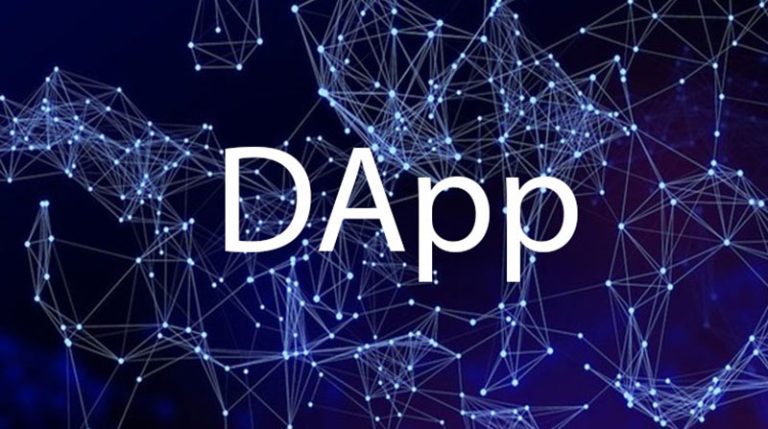Introduction
A Pyth Network is a decentralized system that provides reliable and fast market data for smart
contracts on various blockchains. It collects and aggregates data from multiple sources, such as
exchanges, market makers, and trading firms, who publish their prices directly to the network.
Overview
The Pyth Network caters to a diverse range of assets, including cryptocurrencies, equities, commodities, and foreign exchange. It primarily operates on the Solana blockchain but seamlessly extends data delivery to other blockchains and applications through its APIs. Its cross-chain compatibility fosters a more inclusive and interconnected ecosystem.
The Pyth Network delivers reliable and high-precision data sourced from primary market participants with direct market access. It aggregates data from over 90 leading market players, encompassing prominent exchanges and trading firms.
The Pyth Network’s comprehensive coverage of a diverse array of asset classes empowers the development of more versatile and innovative smart contract applications. Its extensive data feed repository encompasses over 380 feeds spanning digital assets, forex, equities, ETFs, commodities, and beyond.
Its extensive network spans over 40 blockchains, including EVM, Cosmos, Aptos, and Sui, ensuring widespread data accessibility. Additionally, its APIs extend data delivery beyond the blockchain realm, catering to off-chain applications and fostering a broader ecosystem.
Background
In 2021, a consortium of prominent financial institutions, including Jane Street, Jump Trading, GTS, and DRW, launched the Pyth Network, driven by the shared vision of providing high-fidelity real-time market data to smart contracts on diverse blockchains. This collaborative effort aimed to address the growing demand for reliable and granular market information within the burgeoning decentralized finance (DeFi) landscape.
As they delved deeper into blockchain technology, they recognized that the majority of users lacked access to real-time pricing data for their smart contracts. This observation sparked an ambitious endeavor to democratize crypto and provide professional-grade data feeds to even casual crypto enthusiasts which led to the birth of the Pyth Network.
The Pyth Network distributed a token airdrop of 255 million PYTH tokens to 90,000 wallets on November 20, 2021, at 14:00 UTC. This airdrop aligns with the network’s strategy to gradually increase its token supply from the current 1.5 billion circulating tokens to 10 billion over the next three years. The network plans to release inflation incentives every six months to promote decentralized governance.
The Pyth Network’s inception marked a significant milestone in the evolution of DeFi infrastructure, addressing the critical need for a decentralized and scalable oracle solution. The network’s meticulously designed architecture and stringent data quality standards have earned it the trust of leading DeFi protocols and developers.
How the PYTH network is secured
Pyth Network leverages a network of reputable data providers, including trading firms, exchanges, and market makers, who contribute their data to the Pyth Network through a dedicated Solana program.
To safeguard the authenticity and integrity of data submitted by publishers, Pyth Network leverages a robust cryptographic signature and verification mechanism. Each publisher digitally signs their data using a unique private key, and designated verifiers validate the data against the corresponding public key. This cryptographic safeguard ensures that only authorized publishers can contribute data, and that the data remains tamper-proof throughout its journey within the network.
Pyth Network has implemented a reputation system to evaluate the reliability and trustworthiness of its data publishers. This system meticulously tracks the accuracy, consistency, and timeliness of each publisher’s data contributions over time. Publishers who consistently provide high-quality data are rewarded with increased weighting in the aggregation process, ensuring that their data has a greater influence on the final aggregated value. Conversely, publishers with a history of poor performance may have their weights reduced or even eliminated, effectively safeguarding the network’s data feeds from unreliable sources.
Pyth Network bolsters its security posture by conducting regular security audits and penetration testing. These independent assessments proactively identify and address potential vulnerabilities or weaknesses in the network’s security infrastructure. By subjecting itself to rigorous external scrutiny, Pyth Network provides an additional layer of assurance to its users and stakeholders regarding the integrity and resilience of its data feeds.
Tokenomics

The Pyth Network’s native token, PYTH, serves as a dual-purpose governance and incentive token, empowering token holders to actively shape the network’s trajectory and incentivizing data providers for their contributions. PYTH token holders play a pivotal role in the network’s governance, participating in decision-making processes such as determining update fees, crafting reward distribution mechanisms, and approving software updates. Additionally, the PYTH token serves as a reward mechanism, compensating data providers for their valuable contributions to maintaining the network’s high-quality data feeds.
The Pyth Network’s token distribution is structured to incentivize network growth, reward key contributors, and ensure sustainable development. The allocation is as follows:
Ecosystem Growth Total: 52% Unlocked: 7% Locked: 45%
Publisher Rewards Total: 22% Unlocked: 0.5% Locked: 21.5%
Protocol Development Total: 10% Unlocked: 1.5% Locked: 8.5%
Private Sales: Total: 10% Unlocked: — Locked: 10%
PYTH tokens have a circulating supply of 1.5 billion, a total supply of 10 billion, and a maximum supply of 10 billion. The Pyth Network’s market capitalization reaches $4.88 billion when fully diluted, while its TVL stands at a remarkable $8.50 billion.
Use Cases of PYTH Token
PYTH tokens serve multiple purposes within the Pyth Network:
Empowering Governance: PYTH token holders play a pivotal role in shaping the network’s governance, actively participating in on-chain decision-making processes. They hold the power to determine the size of update fees, craft the reward distribution mechanism for data providers, and approve software updates to on-chain programs across diverse blockchains. This active involvement ensures that the Pyth Network remains aligned with the collective interests of its stakeholders and fosters a decentralized and community-driven governance model.
Enhanced Governance Through Delegation: PYTH token holders can leverage delegation to empower data providers or other trusted entities to act on their behalf in governance matters. This delegation mechanism bolsters the network’s security and decentralization by broadening participation and fostering a more diverse and representative community. By delegating their voting power, token holders can amplify their impact on governance decisions while maintaining control over their tokens. This flexible approach ensures that governance remains accessible and inclusive, empowering all stakeholders to contribute to the network’s direction.
Unlocking Premium Services through Staking: PYTH token holders can stake their tokens to gain access to exclusive services or features on the Pyth Network. By staking their tokens, holders can enjoy benefits such as higher frequency data updates, reduced latency, and broader market coverage.
Leveraging PYTH Tokens for Seamless Integration: PYTH token holders can utilize their tokens to seamlessly integrate with a wide range of protocols and platforms that rely on the Pyth Network’s data. This includes decentralized exchanges (DEXs), lending platforms, derivatives markets, stablecoins, and more. This integration expands the token’s utility and creates additional value for token holders while fostering broader adoption and awareness of the Pyth Network.
Fundamental Features and Functionality
- Decentralized Data Bridge: Pyth Network serves as a decentralized oracle, bridging the gap between traditional financial institutions and smart contracts on various blockchains by supplying real-time market data.
- Broad Market Data Landscape: Pyth Network’s expansive market data landscape encompasses over 300 price feeds, covering major asset classes such as crypto, equities, FX, and commodities.
- Industry-Leading Data Providers: Pyth Network draws its strength from a consortium of leading global exchanges, market makers, and financial institutions, each contributing their proprietary data to the network.
- Diverse Data Offerings for Decentralized Finance: Pyth Network’s diverse data offerings encompass Solana Price Feeds, Pythnet Price Feeds, and Benchmarks, supporting the development of innovative decentralized finance applications.
- Ubiquitous Data Accessibility: Pyth Network democratizes data access by enabling universal access to every feed on every chain, facilitated by seamless integration and robust APIs.
- Decentralized Governance through Tokenholder Participation: Empowered by PYTH tokens, token holders are granted the right to participate in the on-chain governance of the Pyth Network, influencing decisions that shape the network’s direction. They exercise their voting power to determine the size of update fees, design the reward distribution mechanism for data providers, and approve software updates to on-chain programs across multiple blockchains. This decentralized governance model ensures that the network’s growth and development align with the collective will of its token holders.
Advantages of Pyth Network
- By providing real-time, accurate, and high-resolution market data for a wide spectrum of financial assets, including crypto, equities, FX, and commodities, Pyth Network empowers developers to build robust and reliable decentralized finance (DeFi) applications. This data-driven approach enhances the functionality and reliability of DeFi applications, such as lending protocols, decentralized exchanges, risk management and derivatives, and portfolio management tools. As a result, Pyth Network serves as a critical catalyst for innovation within the DeFi ecosystem, enabling developers to create groundbreaking applications that cater to the evolving needs of market participants.
- Pyth Network derives its strength from a consortium of esteemed financial institutions, including leading exchanges, market makers, and trading firms, who collectively contribute their proprietary data to the network. This collaboration ensures the unmatched quality and trustworthiness of Pyth’s data feeds, fostering a more inclusive and transparent environment for financial data access.
- Pyth Network champions universal data accessibility by enabling unrestricted access to every data feed on every blockchain. This unwavering commitment to accessibility is further enhanced by seamless integration capabilities and powerful APIs, empowering developers and users to effortlessly access the data they need, regardless of their chosen blockchain environment.
- At the heart of Pyth Network lies its native token, PYTH, which plays a pivotal role in orchestrating the activities of diverse network participants through a well-defined crypto-economic incentive structure. PYTH token holders actively contribute to the network’s governance, delegate their tokens to reputable data providers or entities, stake their tokens to unlock premium services and features, and seamlessly integrate with protocols and platforms that rely on Pyth Network data.
Roadmap
Pyth Network’s roadmap outlines a strategic path towards establishing itself as the premier decentralized data oracle, empowering developers and fostering innovation across the decentralized finance (DeFi) ecosystem.
Phase One: Laying the Foundation for Data Excellence
– Initial Data Symbol Launch: Pyth Network will introduce initial data symbols to address the demand for both difficult-to-source off-chain data and easily verifiable on-chain data. This initial rollout will include US equities, crypto price feeds with confidence intervals, market status signals, TWAPs, and advanced aggregation combination methods.
– Collaborations with Data Leaders: Pyth Network will forge partnerships with industry leaders who possess access to unique data sources, facilitating the on-chain integration of valuable market information. Potential partners include Jump GTS, LMAX, Serum, Virtu, BSX, and Genesis.
– Universal Data Broadcasting: Pyth Network will establish a robust data broadcasting infrastructure, initially broadcasting raw data to Solana and subsequently expanding to other prominent Layer blockchains.
– Early Adopter Engagement: Pyth Network will engage with a select group of decentralized applications (dApps) across various Layer 1 and Layer 2 blockchains to gather feedback and refine its data offerings.
– Strategic Ecosystem Partnerships: Pyth Network will strategically collaborate with key DeFi ecosystems to integrate its data feeds into their platforms and applications.
– Website and Community Launch: Pyth Network will launch its official website (Version 0.1) to provide comprehensive information about its project and establish dedicated community channels on Discord, Telegram, Twitter, Medium, and YouTube to foster open communication and collaboration.
Phase Two: Expanding Horizons and Enhancing Data Granularity
– Data Set Expansion: Pyth Network will broaden its data set coverage to include futures and FX data, providing developers with a wider range of market indicators for their applications.
– TWAP Enhancement and Data Metrics Diversification: Pyth Network will expand its TWAP (Time-Weighted Average Price) offerings and introduce additional data metrics, such as volatility measures.
– Data Provider Growth: Pyth Network will actively expand its network of data providers, diversifying its data sources and ensuring the continued reliability and accuracy of its data feeds.
– Integration Acceleration: Pyth Network will accelerate the integration of its data feeds into a wider range of DeFi applications, empowering developers to build innovative solutions.
– Layer 1 Expansion: Pyth Network will expand its support to additional Layer 1 blockchains, ensuring seamless data availability across the DeFi landscape.
With this comprehensive roadmap, Pyth Network is committed to becoming the cornerstone of decentralized data infrastructure, empowering developers to build robust and innovative DeFi applications that shape the future of finance.
Potential Risks and Roadblocks
- Data Integrity and Accuracy Considerations: Pyth Network’s reliance on data providers, such as crypto exchanges and trading firms, for frequent price updates for various financial assets introduces potential concerns regarding data integrity and accuracy. The diverse methodologies employed by these data providers in measuring and reporting data can lead to discrepancies and errors. For instance, variations in liquidity, volume, and fees across different exchanges can influence the reported price of an asset. While Pyth Network employs a weighted median algorithm to aggregate data from multiple sources, this approach may not always accurately reflect prevailing market conditions.
- Safeguarding Data Integrity and System Resilience: Pyth Network employs cryptographic signatures and verifiers to safeguard its data from manipulation and tampering. However, these mechanisms may not be entirely impenetrable against sophisticated attacks or unforeseen network disruptions. Malicious actors could potentially compromise a publisher’s account to inject erroneous data into the network, or a verifier could collude with a publisher to validate inaccurate information. Additionally, Pyth Network’s operations are inherently linked to the underlying blockchain infrastructure, such as Solana. Should the blockchain network experience congestion, downtime, or forks, it could adversely impact the availability and consistency of Pyth Network’s data.
- Navigating a Competitive Landscape and Regulatory Hurdles: Pyth Network operates within a competitive environment where established oracle services like Chainlink hold a significant market presence and reputation. To gain traction, Pyth Network must effectively communicate its unique advantages, such as its superior speed and precision, to attract potential users and developers. Additionally, Pyth Network faces the challenge of integrating its data with traditional financial systems and institutions while adhering to stringent regulatory requirements. This may involve complying with data privacy and security laws, obtaining licenses and permissions to access and distribute certain types of financial data, and navigating complex regulatory frameworks.
How the Pyth Network Addresses Challenges
- Ensuring Data Integrity and Precision: Pyth Network safeguards the quality and accuracy of its data by sourcing it from a diverse network of over 90 first-party publishers, including some of the world’s leading exchanges and market-making firms. These trusted providers offer deep liquidity, high trading volumes, and low-latency data, ensuring that the aggregated data accurately reflects prevailing market conditions. Pyth Network further enhances data integrity by employing a weighted median algorithm to aggregate data from multiple sources. This approach effectively mitigates the impact of outliers and errors, providing a more robust and reliable representation of market conditions. Additionally, Pyth Network delivers high-resolution data with multiple updates per second, empowering smart contracts to operate with greater precision and security.
- Safeguarding Data Integrity and System Resilience: Pyth Network employs robust security measures to protect its data from manipulation and tampering. Each publisher digitally signs their data with a unique private key, and each verifier validates the data using the corresponding public key. This cryptographic mechanism ensures that only authorized publishers can contribute data and that the data remains authentic and consistent throughout the network. Moreover, Pyth Network leverages the inherent security and reliability of the underlying blockchain infrastructure, such as Solana, which offers high scalability, low fees, and fast transaction finality. By supporting multiple blockchains, Pyth Network further enhances its availability and redundancy, ensuring that its data remains accessible and consistent even in the event of disruptions to a particular blockchain.
- Fostering Widespread Adoption and Seamless Integration: Pyth Network has cultivated a thriving community of users who leverage its data for diverse applications, including decentralized exchanges, lending protocols, and derivatives platforms. Pyth Network champions universal data access, ensuring that every data feed is readily available on every supported blockchain with consistent performance. This unparalleled accessibility empowers developers to effortlessly build and scale their applications across different blockchains. Pyth Network further facilitates integration through its powerful and user-friendly APIs, streamlining the process of consuming data from contracts to frontend applications. Additionally, Pyth Network demonstrates a commitment to regulatory compliance, adhering to data privacy and security laws, and securing licenses and permissions to access and distribute certain types of financial data.
Conclusion
Pyth Network emerges as a groundbreaking oracle solution, bridging the gap between traditional finance and decentralized finance. It empowers smart contracts with high-quality, real-time, and cross-chain financial market data, sourced from the expertise and infrastructure of institutional data providers. By employing a sophisticated aggregation algorithm, Pyth Network ensures the accuracy and reliability of the data it delivers.
Sources:
https://pyth.network
https://coinmarketcap.com/currencies/pyth-network
https://blockonomi.com/pyth-guide
https://medium.com/@CryptoVerse0/pyth-network-will-airdrop-its-upcoming-pyth-token-to-injective-2b5b33ced715
https://www.techopedia.com/definition/pyth-network
https://www.coindesk.com/tech/2023/11/20/the-pyth-airdrop-is-finally-here-but-what-is-pyth-network/




